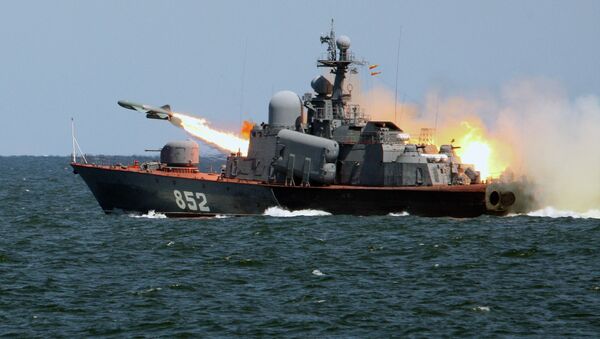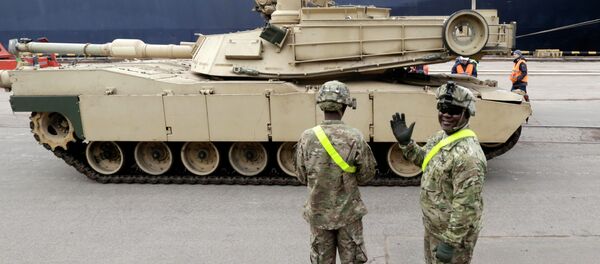NATO troops would not be able to do anything to prevent the Russian Baltic Fleet from blocking the Baltic Sea and cutting off the three Baltic states — Estonia, Latvia and Lithuania — from the rest of the military alliance.
"Kaliningrad now has the ability to deny access of our [US] Navy or any NATO Navy to come to the Baltic Sea. From Kaliningrad Russia can stop from entering coming in to the Baltic Sea, and there we have three NATO allies — Estonia, Latvia and Lithuania," Lieutenant-General Hodges explained, according to the source.
The US General added that the United States and the rest of NATO should be alarmed by this fact.
Just a couple of weeks ago NATO finished its month-long "Baltic Piranha" military training program in Lithuania aimed at flexing its muscles in front of Russia and making its presence felt in Eastern Europe.
Following Russia's reunification with Crimea, NATO officials have accused Russia of militarily intervening in the conflict in Ukraine, with the alliance subsequently bolstering its military presence in the Eastern European and Baltic states of Poland, Romania, Bulgaria, Estonia, Latvia and Lithuania.
Russia on the other hand has consistently denied all accusations that it has been involved in the Ukraine conflict, and has instead criticized NATO for the escalation of tensions in Europe, arguing that the build-up of military activity close to Russia's borders has had a destabilizing effect on relations across the continent.
The increase in military operations and close encounters between Russia and NATO states since early 2014 was documented in the report 'Dangerous Brinkmanship,' by London-based think tank the European Leadership Network, which found that incidents between the two had jumped to Cold War levels.



